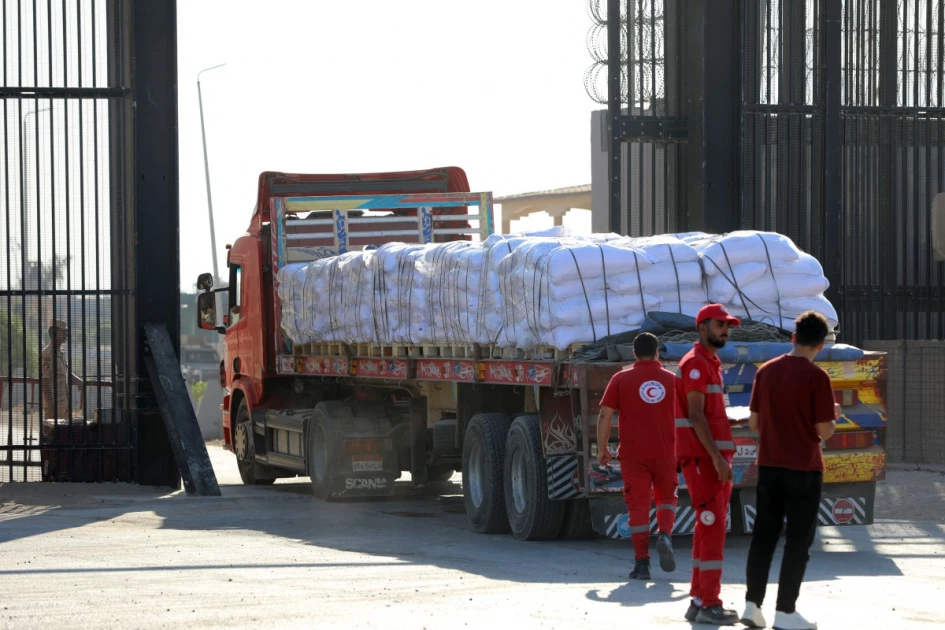Aid trucks have begun entering the Gaza Strip from Egypt, offering a sliver of relief to the besieged territory as Israel implements a “tactical pause” in specific areas to facilitate humanitarian deliveries. AFPTV footage captured the trucks moving through the Egyptian side of the Rafah crossing on Sunday, carrying food and water supplies desperately needed by civilians trapped in the war-ravaged enclave.
While the Rafah border has traditionally served as a major aid route, it is currently unusable due to Israeli military control and extensive damage. Instead, the convoys are being redirected to the nearby Kerem Shalom (Karam Abu Salem) crossing an Israeli-controlled route where all aid is subject to inspection before entry into southern Gaza.
Footage showed the trucks loaded with white sacks, some bearing the Egyptian Red Crescent insignia, while others flew the Emirati flag with banners reading, “United Arab Emirates – Humanitarian Aid to Gaza – Water Support Projects in Gaza.”
The Israeli military stated that the daily “tactical pause,” in effect from 10:00 am to 8:00 pm, applies only to designated areas, including Al-Mawasi, Deir el-Balah, and parts of Gaza City. These are regions where Israeli ground forces are currently not operating. Secure routes have reportedly been established to allow movement of aid convoys led by the United Nations and partner agencies.
This development comes amid growing international criticism over the deteriorating humanitarian situation in Gaza, where food insecurity has reached alarming levels. In recent weeks, Israel, the UAE, and the UK have resorted to air-dropping aid. However, UNRWA Commissioner-General Philippe Lazzarini has condemned the practice, calling air drops “expensive, inefficient, and dangerous,” warning that they could inadvertently harm the very people they aim to help.
While Israel maintains that it is not obstructing humanitarian assistance, blaming some UN agencies for poor distribution, aid groups argue that military-imposed restrictions and insecurity near aid hubs are hampering operations.
On Saturday, Gaza’s civil defence agency reported that more than 50 Palestinians were killed in Israeli strikes and shootings, including some who were reportedly waiting for humanitarian aid. As the death toll and suffering mount, the pressure on all parties to facilitate meaningful and sustained humanitarian access continues to intensify.

